20170925-beal-mw24-collection-001
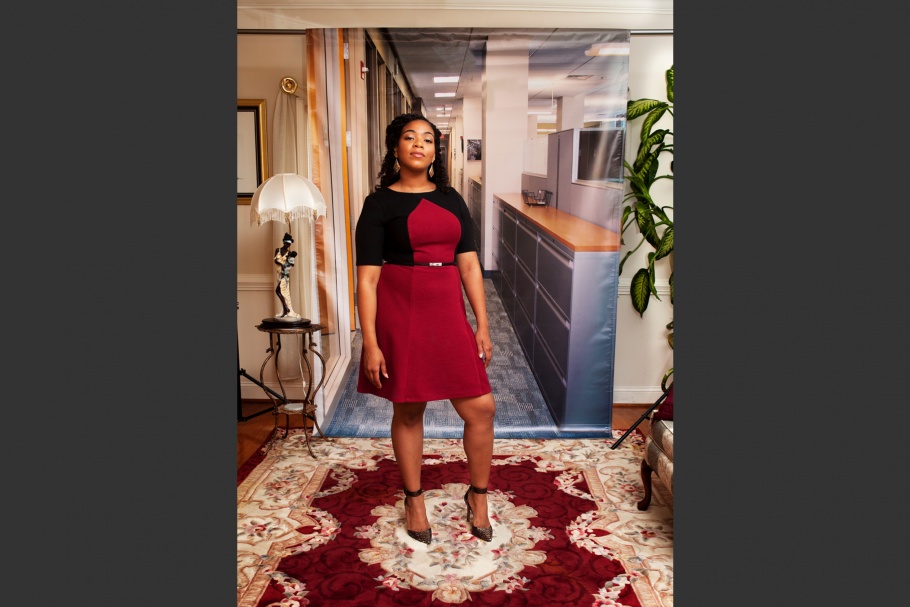
Martinique, 2015
“During my experience in corporate America, I was treated equally as a minority woman. I was able to build relationships with professionals and share my thoughts on how to market to minorities.”
—Martinique, 21, North Carolina
20170925-beal-mw24-collection-002
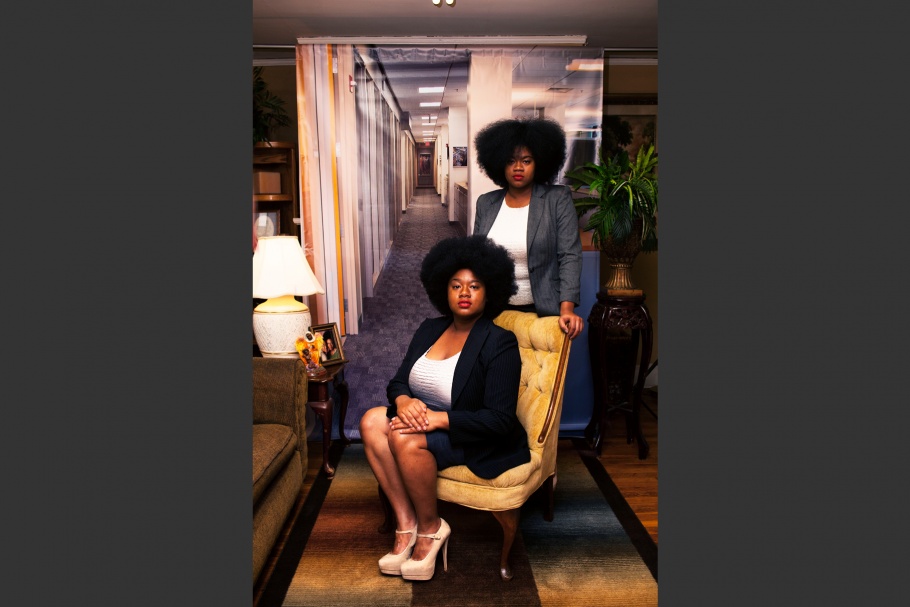
Sabrina and Katrina, 2015
“Corporate America is intimidating, but my hope to succeed allows it to also be promising. I feel like I will have to fight twice as hard to exceed my competition for respect and wages.”
—Sabrina (standing), 23, Arkansas
“I join the band of minority women in corporate America as a faceless heroine. I believe corporate America has lost its sense of serving humanity and I feel obligated to supply it. I noticed that big-name corporations are making an effort to equal the playing field by hiring minority and female leaders...but it’s an indication that there are highly skilled players on the bench ready to be called into play.”
—Katrina (seated), 23, Arkansas
20170925-beal-mw24-collection-003
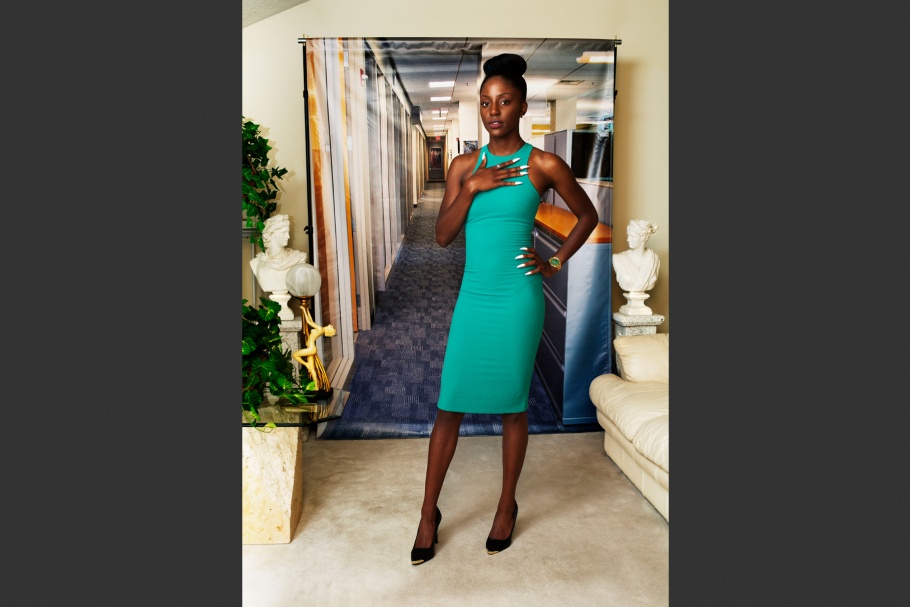
Melanie, 2016
“I feel nervous about entering the corporate environment, but I will not let that change my attitude toward success as a black woman.”
—Melanie, 21, North Carolina
20170925-beal-mw24-collection-004
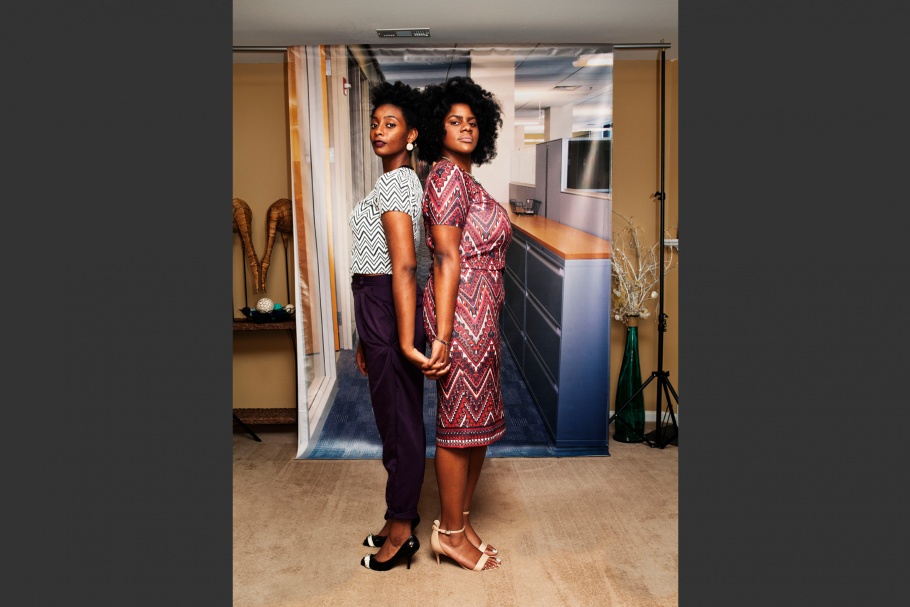
Kyandra and Shakiya, 2016
“I feel as though the corporate world is not representative of me as a black woman and also as an individual. There are too many restrictions on appearance in corporate America. I am more of a free spirit; I fully believe in expressing myself. I don’t feel as though I should have to compromise the majority of things about me to fit the corporate mold. I can definitely see myself in a more creative field where I can have the option to express myself.”
—Kyandra (left), 21, North Carolina
“Honestly, it can be intimidating. The major industries that come together to make corporate ‘America,’ a country that claims to be all-inclusive, are mainly comprised of one type of person. That person is the white male ... and there isn’t a book you can read or a certification you can get to make you more of a white male—you are or you aren’t. With that being said, if I were to approach this question as if I were giving advice to my younger self on the corporate experience I have gained I would say, ‘As an African American woman in the corporate world you must approach every situation with confidence. You must know who you are and what you are capable of intellectually. You must remember to be on guard because there will be stereotypes already assumed that you do not want to fit into. You must remember that you may sometimes be surpassed for opportunity simply because you are a woman and simply because you are black. However, with determination and the power rooted in you from the tears of your ancestors, you will eventually bloom into a beautiful flower filling up the board room with your intelligence and creativity and then, only then is when you let your curly hair down. Not a moment before.’”
—Shakiya (right), 24, North Carolina
20170925-beal-mw24-collection-005
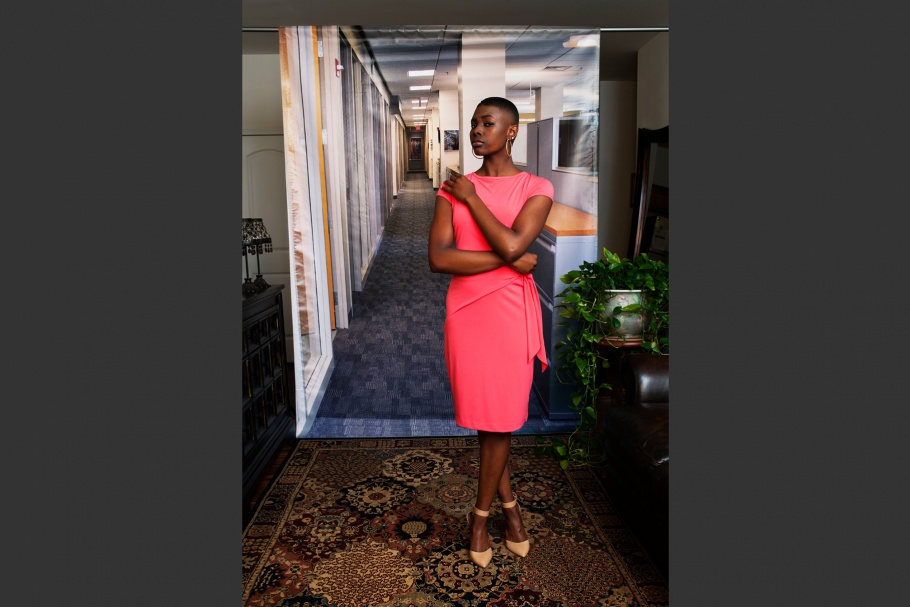
Tianna, 2016
“In corporate America it is twice as hard—not only being a woman, but also a black woman—to meet the cultural norms that are expected. As Black women, we get more responsibility, but less power.”
—Tianna, 20, North Carolina
20170925-beal-mw24-collection-006
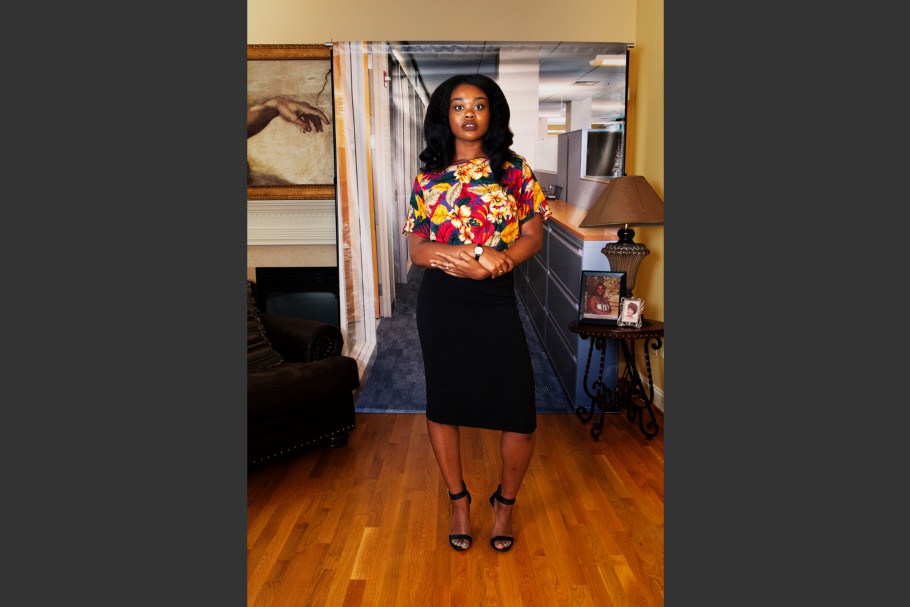
Kennedy, 2016
“As a black woman in corporate America, straightening my hair should be MY personal choice. Why is it okay for me to come to an interview with a weave in my hair and be accepted, but not my natural Afro? It’s not right. We want to be accepted just the way we are.”
—Kennedy, 20, North Carolina
20170925-beal-mw24-collection-007
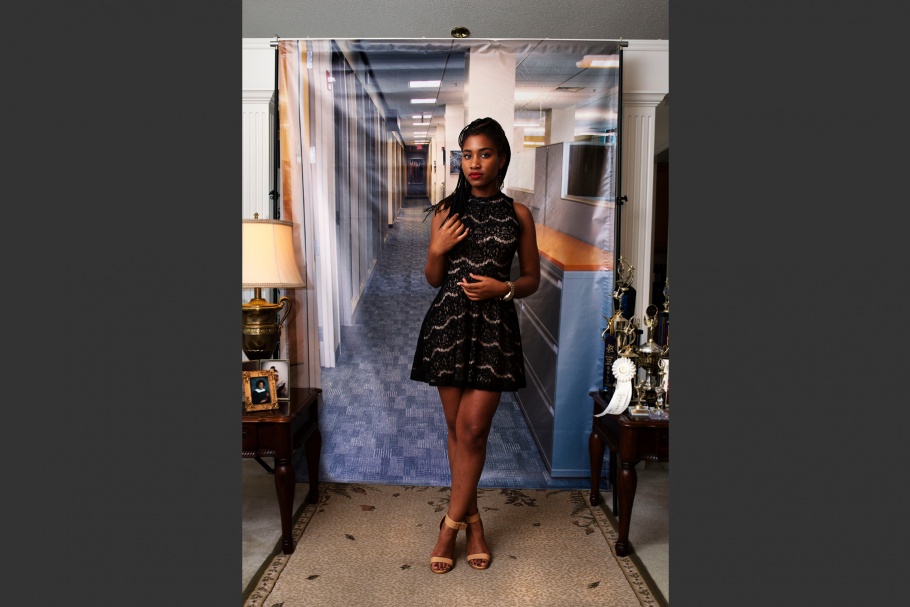
Deanna, 2016
“As an example of ‘beauty and brains,’ I’ve always been confident in my own sense of purpose and worth but at the same time I feel the need for improvement. There’s no shortcut to success but in order to succeed, making the corporate atmosphere conducive for both women and men is a must. For women, today’s society tells us in order to be successful you have to be charming, submissive yet assertive, or a beauty queen. But it’s too late, we’re already successful. Be the agent of your change and transformation. Only you have the power to excel by knowing what you want and going after it to reach the top of your pinnacle.”
—Deanna, 22, North Carolina
20170925-beal-mw24-collection-008
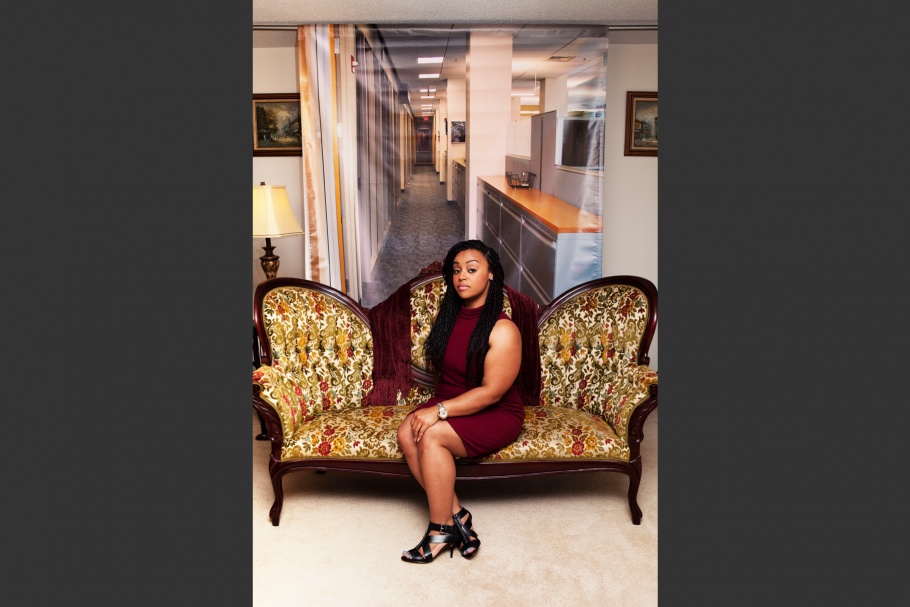
Jessica, 2016
“It is a benefit for corporate America to have diverse perspectives that align with the company’s strategy in order to gain a broader market share and truly embrace diversity and inclusion.”
—Jessica, 28, North Carolina
20170925-beal-mw24-collection-009
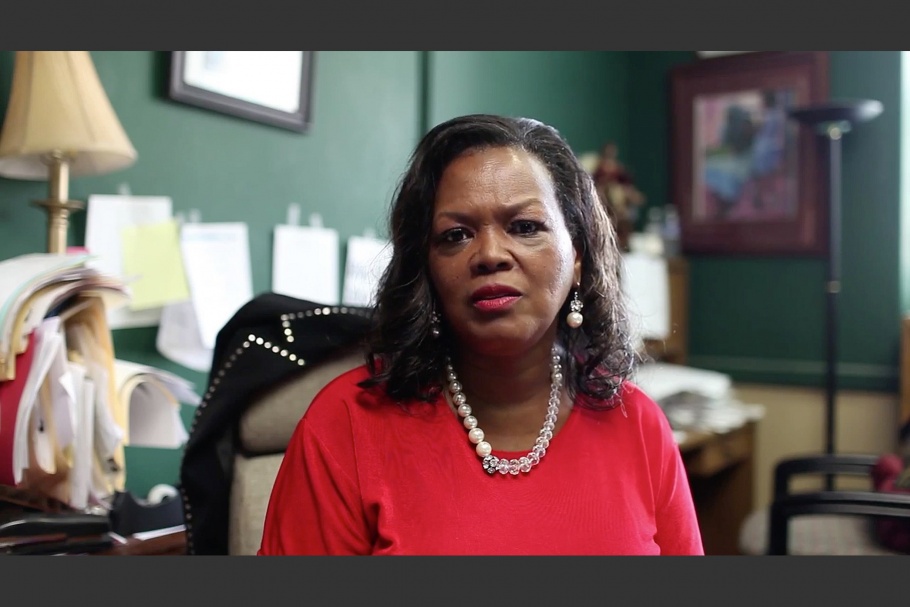
Still image from 9 to 5, 2014
Running time: 3 minutes
9 to 5 is a composite narrative comprised of clips from five-minute interviews with black women about their experiences with prejudice and racism within corporate culture. The similarities between their testimonies is remarkable. Weaved together, the stories of multiple women become one voice and create a single, common narrative.
Endia Beal (American, b. 1985) is a North Carolina based artist, educator, and activist. She is internationally known for her photographic narratives and video testimonies that examine the personal and contemporary stories of women of color working within corporate offices and environments. Beal is the director of Diggs Gallery and is an assistant professor of art at Winston-Salem State University.
Her work has been exhibited in museums and galleries such as the Columbia Museum of Art (Columbia, South Carolina), the Harvey B. Gantt Center for African-American Art + Culture (Charlotte, North Carolina), and Aperture (New York, New York), and she is a recipient of the Magnum Foundation Emergency Fund grant (2016). The Open Society Moving Walls Grant will support an exhibition, book, and new experimental video, as well as diversity and inclusion programming.
Endia Beal
My work uses photographic narratives and video testimonies to examine the personal and contemporary stories of women of color working within corporate spaces. As a Black female photographer, I have also witnessed the underrepresentation of stories by and for people of color within fine art circles and photojournalism.
My own experiences and struggles as a woman of color in office settings have inspired the projects shown in this exhibition. Am I What You’re Looking For? and 9 to 5 provide vehicles for women to share testimonies and speak on issues that normally go unheard.
Many of the women who participated in Am I What You’re Looking For? were my students at Winston-Salem State University in North Carolina. They disclosed personal difficulties in securing employment after graduation.
Employers would tell them that their natural hair was unprofessional or their name was too difficult to pronounce and would suggest they alter themselves for the job. These stories are all too familiar to my own struggles, but are rarely shared with colleagues or management due to fear of rejection or lack of opportunities to address these issues.
9 to 5 is a composite narrative comprised of clips from five-minute interviews with Black women about their experiences with prejudice and racism within corporate culture. The similarities between their testimonies is remarkable. Woven together, the stories of multiple women become one voice and create a single, common narrative.
—Endia Beal, October 2017